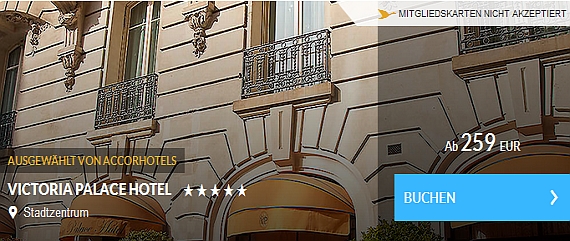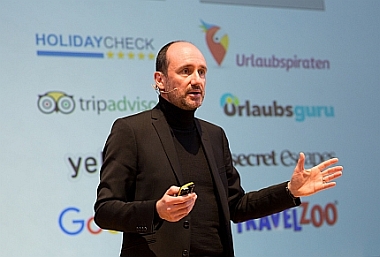
News & Stories
London. Attribution continues to be an issue for the travel and tourism industry as travelers hop across devices and sites during their journey. More than half of marketing professionals in a survey report that they have limited visibility of their customers as they move across devices and touchpoints.
Berlin/Cologne. HRS continues to work on its own profile. In Berlin, CEO Tobias Ragge provided insight into the current state of play. Three segments are currently driving HRS: corporate client business, multi-source and holiday homes. All tools serve merely to satisfy customers. For this reason, HRS is even prepared to cannibalise its own model. The decision-making power of the future rests with the customer. For this reason, the HRS boss has some critical words to say about the power of the mega chains.
Berlin. One in four hotel room nights in Germany was generated via online booking portals in 2016. Here, the three portals Priceline Group, HRS and Expedia dominate the OTA market with a combined market share of more than 95%. Especially Booking.com picked up drastically.
Brussels. Booking your holidays online: The European Commission and consumer protection authorities act on misleading travel booking websites. Both launched a coordinated screening of 352 price comparison and travel booking websites across the EU in October 2016.
Siders. Der Anteil an Buchungen in der Schweizer Hotellerie über Online-Buchungsplattformen verzeichnete im vergangenen Jahr einen Boom und machte 2016 mehr als 27% aller generierten Übernachtungen aus, gegenüber 20,6% im Jahr 2015. Die drei führenden OTAs booking.com, Expedia und HRS generieren zusammen 93% dieses Online-Geschäfts.
Munich. A new start-up has now digitalised the search for long-term accommodation. Livabout has launched in Munich. The new portal allows travellers looking for long-term accommodation to search in a novel way using artificial intelligence which sifts through over 100 criteria.
Paris. It's been 20 months now since AccorHotels opened up its booking platform to independent hotels worldwide. Taking the fight to online travel agencies, the market place is growing strong and fast – faster than perhaps expected by AccorHotels' CEO Sébastien Bazin. During the group's presentation of the annual results on February 22, he mentioned that "the real difficulty is not recruiting new hotels but being capable of distributing all of them." As he didn't say much more that day about the marketplace, hospitalityInside.com asked Romain Roulleau, AccorHotels' Senior Vice President eCommerce and Digital Services, to give an update on new recruits, online sales, new services, ambitions and challenges.
Bad Ischl/Vienna. At last week's annual congress of Austria's OEHV hotelier association, there was again much ado about online distribution. Since January, Austria's hotels have been permitted to offer their rooms at a lower price than online travel agencies. But the online giants still have the hotels – and particularly the small, private ones – in their clutches. The drop in rate parity is slowly beginning to show first effects. But the fight still has a lot of power: by late 2017, half of all hotel reservations is likely to be carried out online.
Las Vegas. Artificial Intelligence is finding its way into hospitality: The Wynn Las Vegas is installing Amazon Echo in all rooms. In Europe, the first hotel piloting a voice-activated chatbot that services guests in their suites is the Clarion Amaranten in Stockholm.
Rockville. Franchisees of Choice Hotels expect a good year 2017 and have ambitious refurbishment plans again. As in the year before, they require a strong impulse in sales and marketing.



